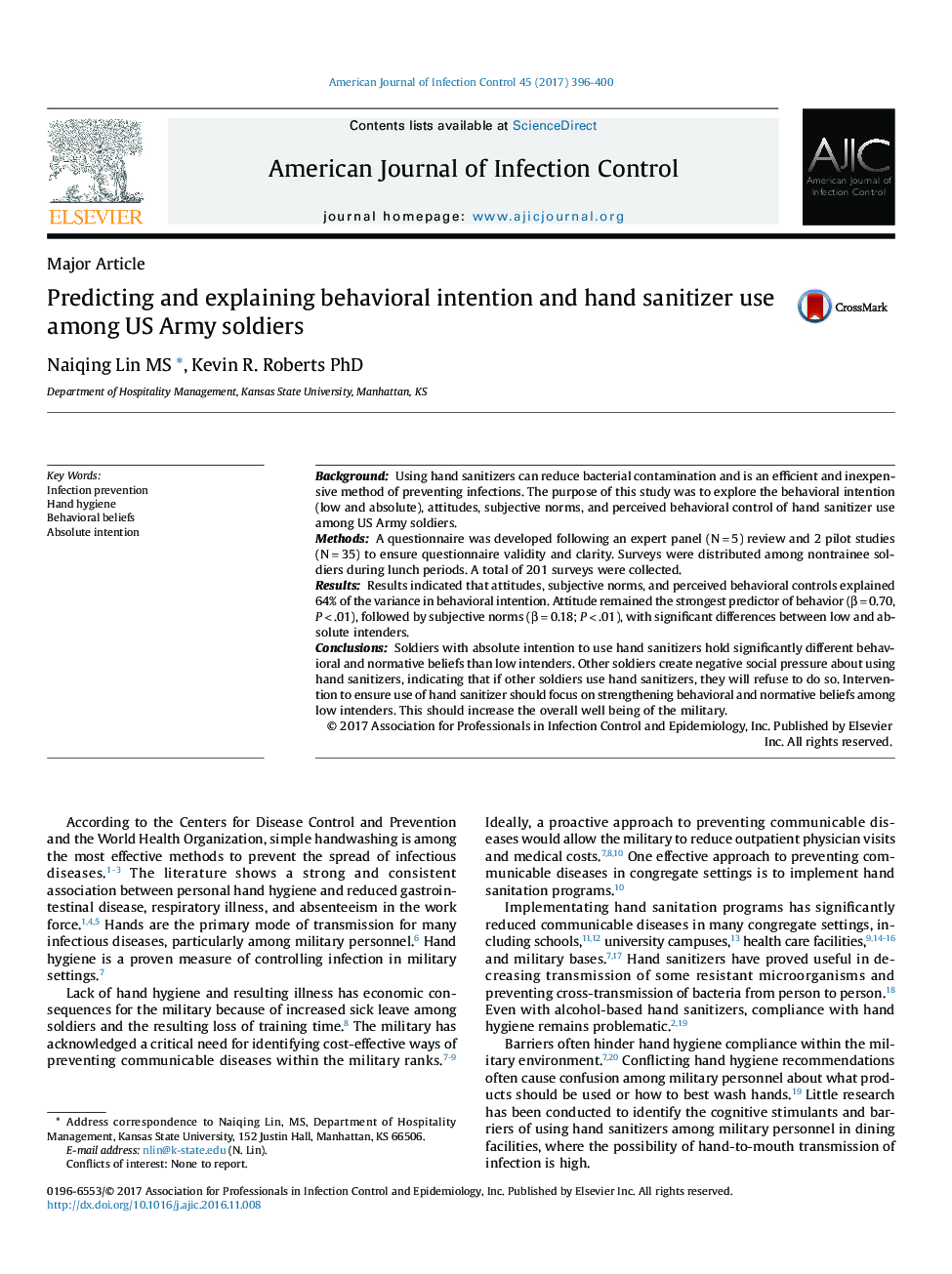| Article ID | Journal | Published Year | Pages | File Type |
|---|---|---|---|---|
| 5566665 | American Journal of Infection Control | 2017 | 5 Pages |
â¢Behavioral beliefs explained 64% of the variance regarding behavioral intention.â¢Attitude was the strongest predictor of behavioral intention.â¢Family/friends, medical providers, and leadership were important referent groups.â¢Soldiers with absolute intention perceived stronger attitudes and social norms.â¢Negative social pressure from peers not to use hand sanitizers impacted behavior.
BackgroundUsing hand sanitizers can reduce bacterial contamination and is an efficient and inexpensive method of preventing infections. The purpose of this study was to explore the behavioral intention (low and absolute), attitudes, subjective norms, and perceived behavioral control of hand sanitizer use among US Army soldiers.MethodsA questionnaire was developed following an expert panel (Nâ=â5) review and 2 pilot studies (Nâ=â35) to ensure questionnaire validity and clarity. Surveys were distributed among nontrainee soldiers during lunch periods. A total of 201 surveys were collected.ResultsResults indicated that attitudes, subjective norms, and perceived behavioral controls explained 64% of the variance in behavioral intention. Attitude remained the strongest predictor of behavior (βâ=â0.70, Pâ<â.01), followed by subjective norms (βâ=â0.18; Pâ<â.01), with significant differences between low and absolute intenders.ConclusionsSoldiers with absolute intention to use hand sanitizers hold significantly different behavioral and normative beliefs than low intenders. Other soldiers create negative social pressure about using hand sanitizers, indicating that if other soldiers use hand sanitizers, they will refuse to do so. Intervention to ensure use of hand sanitizer should focus on strengthening behavioral and normative beliefs among low intenders. This should increase the overall well being of the military.
